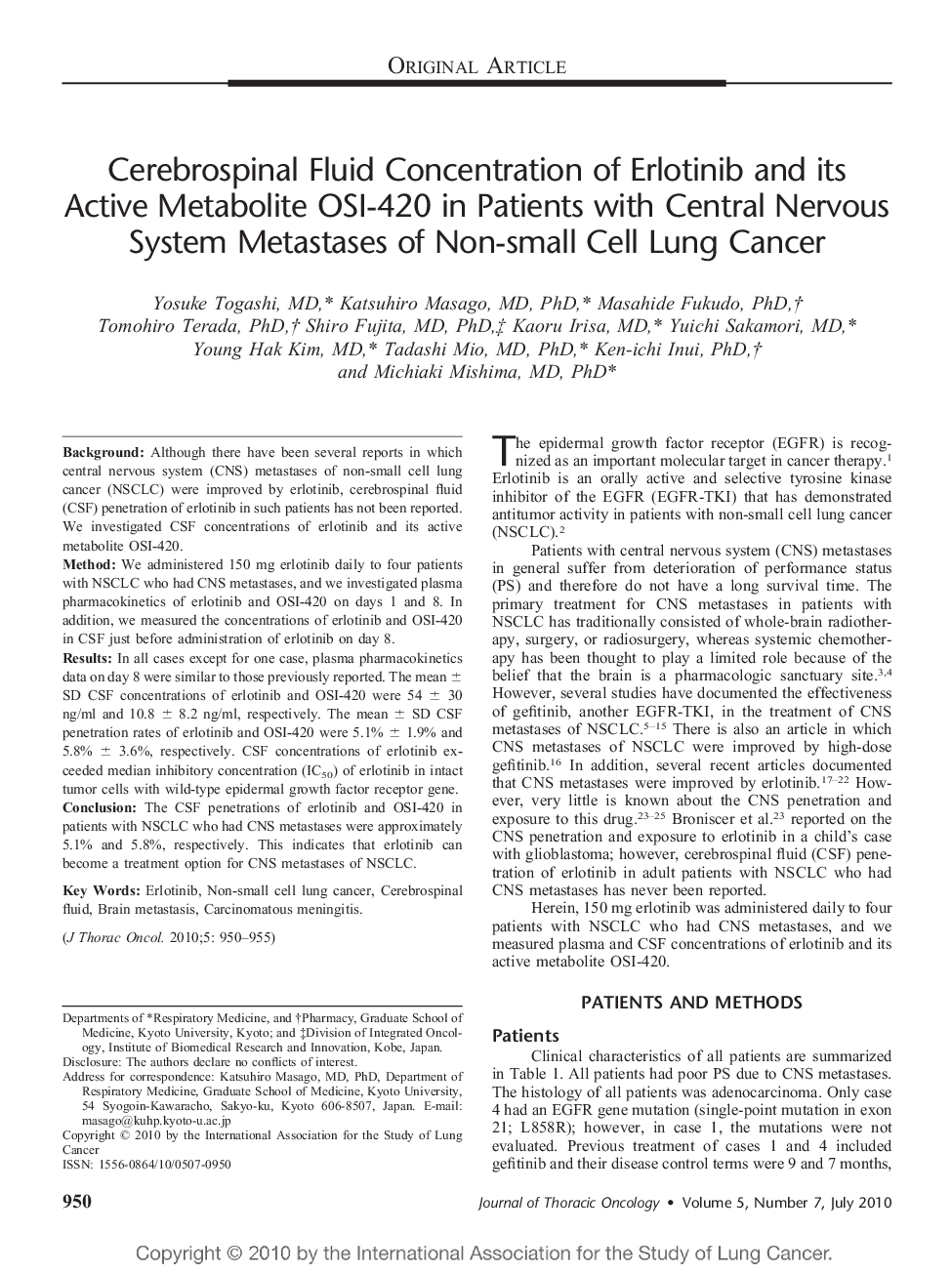| Article ID | Journal | Published Year | Pages | File Type |
|---|---|---|---|---|
| 3990299 | Journal of Thoracic Oncology | 2010 | 6 Pages |
BackgroundAlthough there have been several reports in which central nervous system (CNS) metastases of non-small cell lung cancer (NSCLC) were improved by erlotinib, cerebrospinal fluid (CSF) penetration of erlotinib in such patients has not been reported. We investigated CSF concentrations of erlotinib and its active metabolite OSI-420.MethodWe administered 150 mg erlotinib daily to four patients with NSCLC who had CNS metastases, and we investigated plasma pharmacokinetics of erlotinib and OSI-420 on days 1 and 8. In addition, we measured the concentrations of erlotinib and OSI-420 in CSF just before administration of erlotinib on day 8.ResultsIn all cases except for one case, plasma pharmacokinetics data on day 8 were similar to those previously reported. The mean ± SD CSF concentrations of erlotinib and OSI-420 were 54 ± 30 ng/ml and 10.8 ± 8.2 ng/ml, respectively. The mean ± SD CSF penetration rates of erlotinib and OSI-420 were 5.1% ± 1.9% and 5.8% ± 3.6%, respectively. CSF concentrations of erlotinib exceeded median inhibitory concentration (IC50) of erlotinib in intact tumor cells with wild-type epidermal growth factor receptor gene.ConclusionThe CSF penetrations of erlotinib and OSI-420 in patients with NSCLC who had CNS metastases were approximately 5.1% and 5.8%, respectively. This indicates that erlotinib can become a treatment option for CNS metastases of NSCLC.
